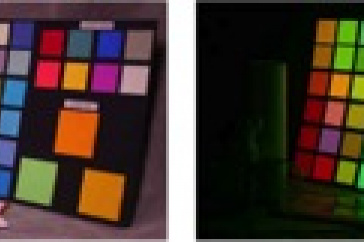UNH Receives $1.2M for Science Afterschool Program in Rural Areas

This is the image caption.
DURHAM, N.H. - The University of New Hampshire Department of Education has received a $1.2 million dollar grant from the National Science Foundation (NSF) to implement a science-based afterschool program and to research whether the program improves science achievement in traditionally underachieving groups.
The project will engage over 2000 rural and indigenous youth in afterschool programs across New England in which they will map sustainable practices (MSP) within their communities. The goal is to strengthen the connection for youth between science and their home and community lives.
Rural and indigenous children experience higher dropout rates, perform worse on science achievement tests, and are underrepresented in science careers as compared to non-rural students, according to the researchers. The research team believes that children are always motivated to learn, although they sometimes engage in behaviors that both hinder their academic performance and establish identities as "unmotivated students."
The interdisciplinary research team consists of lead researcher Eleanor Abrams, professor of education and senior faculty fellow with the Office of the Vice Provost for Engagement and Academic Outreach; Michael Middleton, associate professor of education, chair of the Department of Education; Tom Kelly, chief sustainability officer at UNH and director of the UNH Sustainability Institute; Judy Dow, traditional ecological knowledge educator at Gedakina, Inc.; Rick Pouliot, executive director of Gedakina, Inc.; Ruth Varner, research associate professor in Earth sciences; Claes Thelemarck, extension field specialist with UNH Cooperative Extension; Mike Young, program team leader with UNH Cooperative Extension; and Patrick Messer, director of the UNH Research Computing and Instrumentation Center.
"When students learn science in a way that's connected to their daily lives and personal interests, they are more likely to be engaged and motivated to learn more. Our research team has undertaken the ambitious project to create science learning opportunities deeply connected to adolescents' lives and to research the impact of participation on their science learning and motivation," Abrams said.
"One component of our project that we anticipate will enhance motivation is making the work relevant and meaningful to students' own lives. In rural majority and indigenous students, relevance may go beyond superficial connections and resides in their ability to be productive members of their community," Middleton said.
On a small scale, sustainability science programming has been shown to be successful in helping students learn by integrating key information and community practices through place-based learning.
The three-year project will examine changes in the knowledge, attitudes, and motivation of more than 2,000 rural and indigenous youth across New England for learning sustainability science as they participate in MSP projects. MSP is not a single prescribed activity but is a way to contextualize science learning by providing a unifying framework while allowing each community team to create approaches based on local strengths and interests.
The researchers plan to share the results of the project -- effective MSP approaches and descriptions of the learning contexts and student products -- with science educators through a project-sponsored conference and interactive geographic information system (GIS) websites.
"This project has the potential to inform best practices for enhancing achievement in science, to create a model that may be scaled up to other communities, and to promote ecological and cultural sustainability in unique communities," Abrams said.
This grant was made possible by support from the Research Leveraging Initiative awarded by the UNH Office of Research. The University of New Hampshire, founded in 1866, is a world-class public research university with the feel of a New England liberal arts college. A land, sea, and space-grant university, UNH is the state's flagship public institution, enrolling 12,200 undergraduate and 2,300 graduate students.
Latest News
-
July 2, 2024
-
June 18, 2024
-
June 18, 2024
-
May 17, 2024
-
May 14, 2024

















































